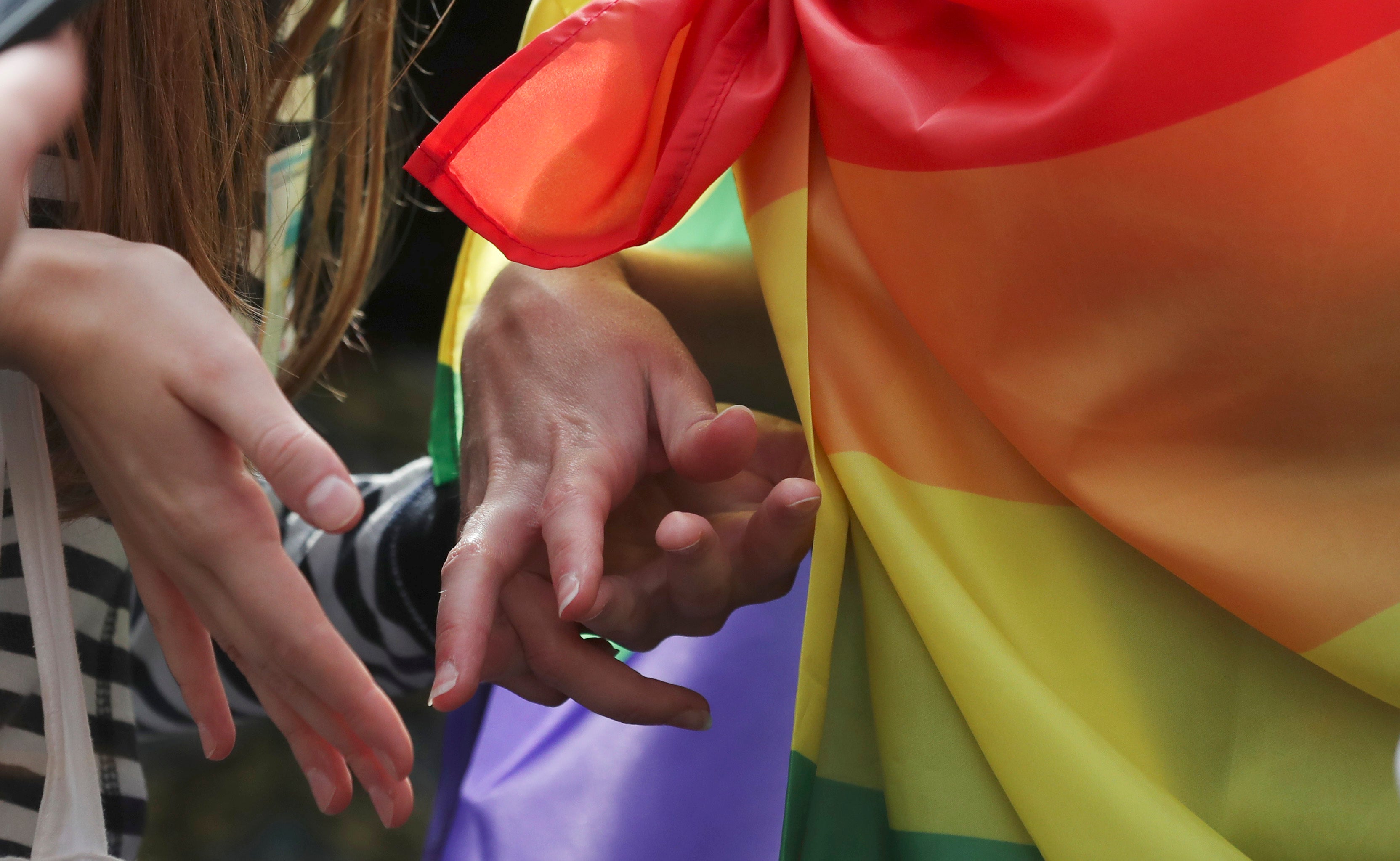EU lawmakers to debate declaring bloc an LGBT 'freedom zone'
The European Parliament is due to debate a resolution that would symbolically declare the entire 27-member European Union to be a “freedom zone” for LGBT people

Your support helps us to tell the story
From reproductive rights to climate change to Big Tech, The Independent is on the ground when the story is developing. Whether it's investigating the financials of Elon Musk's pro-Trump PAC or producing our latest documentary, 'The A Word', which shines a light on the American women fighting for reproductive rights, we know how important it is to parse out the facts from the messaging.
At such a critical moment in US history, we need reporters on the ground. Your donation allows us to keep sending journalists to speak to both sides of the story.
The Independent is trusted by Americans across the entire political spectrum. And unlike many other quality news outlets, we choose not to lock Americans out of our reporting and analysis with paywalls. We believe quality journalism should be available to everyone, paid for by those who can afford it.
Your support makes all the difference.The European Parliament is scheduled to debate a resolution on Wednesday that would declare the entire 27-member European Union a “freedom zone” for LGBT people.
The move comes largely in reaction to developments over the past two years in Poland, where many local communities have adopted largely symbolic resolutions declaring themselves free of what conservative authorities have been calling “LGBT ideology.”
These towns say they are seeking to defend their traditional Catholic values, but LGBT rights activists say the designations are discriminatory and make gays and lesbians feel unwelcome. The areas have come to be colloquially known as “LGBT-free zones.”
But the resolution to be debated Wednesday also seeks to address problems faced by lesbian, gay, bisexual, transgender, intersex and queer people across the bloc.
It says the fundamental rights of LGBT people have been “severely hindered” recently in Hungary due to a de facto ban on legal gender recognition for transgender and intersex people. It cites problems in Latvia, and notes that only two member states — Malta and Germany — have banned “conversion therapy,” a controversial and potentially harmful attempt to change a person's sexual orientation.
The resolution is the work of the a cross-party group in the European Parliament, the LGBTI Intergroup, which says it has garnered enough support to approve the largely symbolic resolution.
Liesje Schreinemacher, the vice chair of the group and a Dutch lawmaker with Renew Europe, a liberal political group, said the resolution is timed to roughly mark the second anniversary of the first Polish community, Swidnik County, passing an anti-LGBT resolution.
She also referred to problems elsewhere, including suspicions that a man murdered in Belgium on the weekend was the victim of a homophobic attack.
“We wanted to send a strong signal in Poland that we consider all of Europe to be an LGBTI freedom zone,” she told The Associated Press. “But every European country has work to do.”
Dozens of local governments across conservative eastern and southern Poland began in March 2019 to pass either resolutions declaring themselves to be free from “LGBT ideology,” or family charters defending traditional families in the mostly Catholic nation.
They have proven costly to Poland's international image, and to the finances of local communities. The EU and Norway — a non-EU member that funds some development in EU nations — have cut off funds for policies they view as discriminatory.
Bart Staszewski, a Polish activist who created an art project on the “LGBT-free zones” that drew the ire of the government and conservatives, said he sees the EU resolution as “important and necessary.”
But he also noted that local governments stopped passing such resolutions months ago and some communities have already withdrawn theirs. Others have passed resolutions declaring support for all types of families.
“There is some very good change,” Staszewski said. “I see this as a very good sign for the future.”